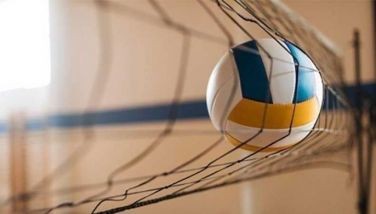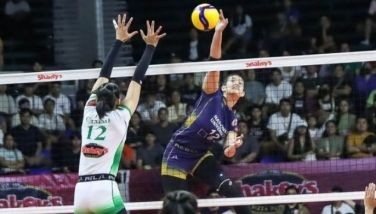De las Alas: Pioneer in sports
The Philippine Columbian Association was packed with admirers and relatives of Don Antonio de las Alas Thursday last week who attended the launching of the sportsman’s biography, “Small Man With a Tall Shadow”. I had written about the biography crafted by de las Alas’s two surviving daughters, Pacita (Ching) Montinola and Carmencita (Menchu) Concepcion, but could only provide a glimpse of the many facets of de las Alas’s life.
Born on October 14, 1889 in Taal, Batangas, de las Alas died of pneumonia in Chicago on October 5, 1983 after leaving an indelible mark in politics, business, sports and community service.
At 15, in 1904, de las Alas left the Philippines for the US as a “pensionado” or scholar of the US government in US schools. De las Alas obtained his Master of Laws, cum laude, from Yale University in 1909 and passed the bar in 1913.
While in the US, despite his small frame (79 pounds, 5’3”), de las Alas engaged in sports and regular exercise. He exercised, ran and walked everyday and imposed on himself methodical and regular physical training. De las Alas soon became a member of the school track and field team and boxing champion.
Upon his return to the Philippines, de las Alas continued to be involved in sports. While the Young Men’s Christian Association (YMCA) was doing its share in promoting sports, the new Philippine Amateur Athletic Federation (PAAF) that de las Alas helped form with Elwood Brown and other Manila residents, would later pave the way for promoting organized sports and the Olympic movement in the Philippines. De las Alas was vice president of the PAAF from 1935 to 1955 (with his dear friend Jorge Vargas as president) and president from 1955 to 1968.
In between his involvement in sports, de las Alas managed to assume a number of elective positions: he was elected congressman for the first of four times in 1922 representing the first district of Batangas. He would later be elected speaker, pro tempore in the House of Representatives and delegate to the 1934 Constitutional Convention. In 1941, he was elected senator placing sixth in a field of 24.
In 1971, de las Alas was again elected as delegate to the 1971 Constitutional Convention (Concon). The 1971 Concon was unable to finish its work when Marcos carried out his martial law Proclamation 1081 on September 23, 1972. He had Congress and the Concon padlocked and ordered the arrest (without charges) of a number of opposition lawmakers and Concon delegates.
Ching Montinola and Menchu Concepcion state that when their father was in Congress, there was hardly a project geared for the improvement of sports that their dad was not involved in. He saw to it that Congress provided for a regular appropriation for the support of the PAAF.
With the Philippines then a colony of the US, Governor-General Frank Murphy appointed de las Alas, Secretary of Public Works. In collaboration with Vargas, de las Alas raised funds for the Rizal Memorial Sports complex.
De las Alas used engineers, personnel and equipment of the Public Works to construct the complex. The stadium, designed by Architect Juan Arellano, was completed for the 1932 Far East Olympics, the precursor of the Asian Games.
The sports complex was at the periphery of what is now known as the Harrison Plaza (then Harrison Park) at Vito Cruz. Recalling the initial opposition to the construction of the sports complex, de las Alas said, “There were so many objections when I first proposed the construction of the largest sports facilities in the region. Later on, they agreed it was for a good purpose.” De las Alas had single-mindedly pursued because “the only way to improve athletics is through the inculcation of sports consciousness and the construction of more playgrounds and sports facilities.”
Reminiscing at his Manufacturers’ Bank office in front of the Sta Cruz church in downtown Manila, de las Alas recalled his “modest” contributions to local and international sports. He was so attached to sports that he made it a point to be present in all important sports events throughout the country, “I consider it a civic duty on my part to promote sports as it provides priceless benefits to our citizens, especially the youth.”
De las Alas had firmly believed the most practical and effective means of helping the youth is by developing their character, health and welfare through sports.
A committed sportsman, devoted disciple for the advancement of sports in the country and consistent supporter of the youth, de las Alas may have stood only a little above five feet but he towered more than 10 feet tall for his contributions to the development of sports.
- Latest
- Trending































